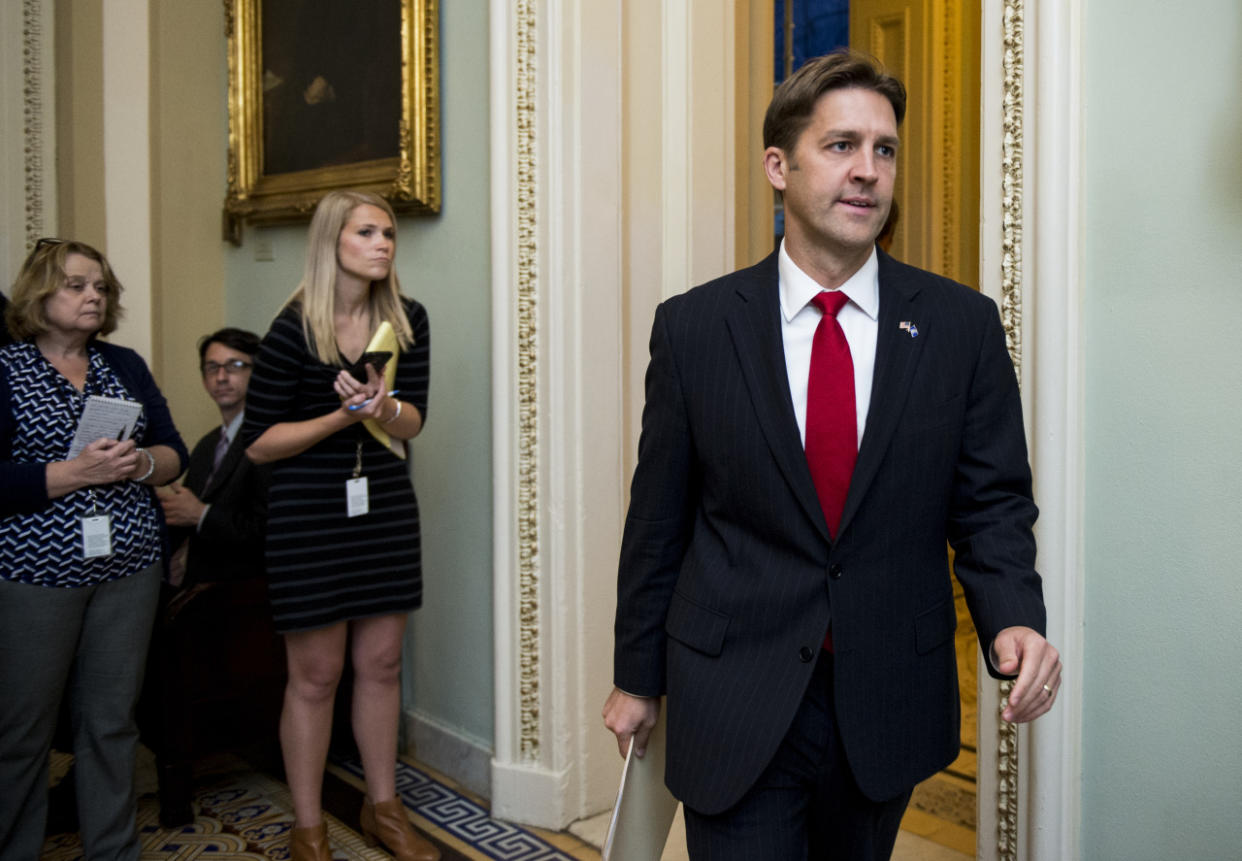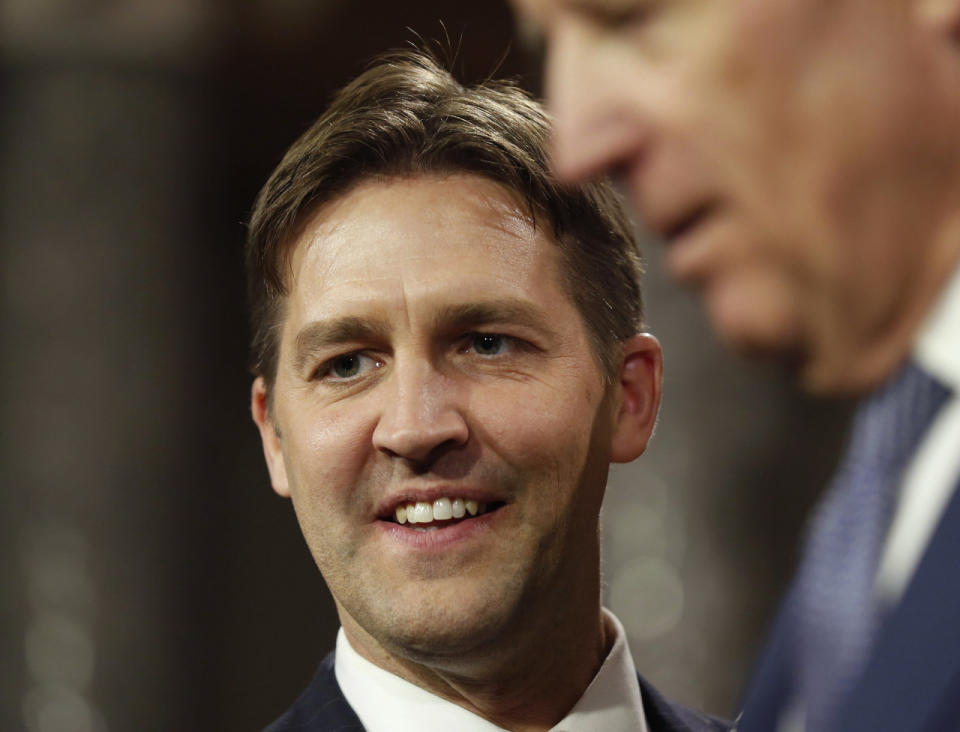Ben Sasse criticizes Senate partisanship in floor debut: ‘We’re not doing our job’

Sen. Ben Sasse, R-Neb., at the Capitol for the Senate Republicans’ policy lunch on Nov. 3. (Photo: Bill Clark/CQ Roll Call/Getty Images)
In deference to tradition, a freshman senator waited a year before delivering his maiden speech so he could observe the Senate’s culture and modus operandi from within. And he did not like what he saw.
Sen. Ben Sasse, R-Neb., accused Republicans and Democrats of being distracted from the big issues facing the United States by partisan bickering and the sound-bite news cycle.
“The people despise us all. And why is this?” Sasse, 43, said from the Senate floor on Tuesday. “Because we’re not doing our job. We’re not doing the primary things that people sent us here to do. We’re not tackling the great national problems that worry our bosses at home.”
Sasse, who received his Ph.D. in history from Yale University, says the Senate is supposed to protect lawmakers from obsessing over short-term popularity so they can focus on the biggest long-term challenges facing the nation.
In private, the conservative said, there is actually a great deal of agreement and human affection among senators. But incessant fundraising and the ubiquity of cameras have incentivized short-term, cynical behavior.
“No one in this body thinks the Senate is laser-focused on the most pressing issues facing the nation. No one,” he said. “Some of us lament this fact. Some are angered by it. Many are resigned to it. Some try to dispassionately explain how they think it came to be. But no one disputes it.”
The Socratic dialogue that should define what has historically been “the greatest deliberative body in the world” too often devolves into “bizarre partisan-politician speech” that distorts an opponent’s argument to evade his or her strongest points, according to Sasse.

Sasse was ceremonially sworn in by Vice President Joe Biden in January. (Photo: Larry Downing/Reuters)
“And if I can be brutally honest for a moment: I’m home basically every weekend, and what I hear — and what I’m sure most of you hear — is some version of this: A pox on both parties and all your houses. We don’t believe politicians are even trying to fix this mess,” said Sasse, a former Midland University president.
The political class is not unpopular because of its “relentless truth-telling,” Sasse said, but because politicians regularly pander to people who already agree with them.
Sasse, who during his campaign proposed moving the U.S. Capitol to his home state, acknowledged that calling for the recovery of more honest debate in the Senate during his introductory speech puts him at risk of being written off as a naive idealist.
But, he argued, long-term problems — such as developing a long-term strategy for fighting jihad and cyberwar or speaking honestly about overpromising entitlements — cannot be confronted adequately without a functioning Senate.
The institution can be saved, Sasse said, if senators realign their identities with their legislative duties from the Constitution’s Article I and some purposeful tension with the executive branch.
“Everything cannot be simply Republicans versus Democrats,” he said. “We need Democrats to speak up when a Democratic president exceeds his or her powers. And I promise you that I plan to speak up when the next president of my party exceeds his or her proper powers.”
The tradition of the so-called maiden speech dates back to the earliest days of the Senate. Newly elected members would remain silent during floor debates for a period of time (from several months to several years depending on the era) before giving their first speech. Waiting a respectful amount of time was thought to demonstrate humility before more senior colleagues. These days, special attention is still given to a senator’s first major address.

